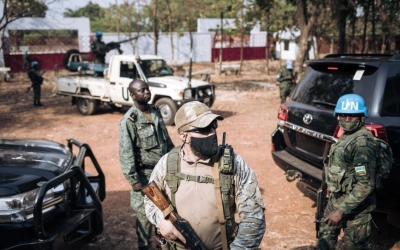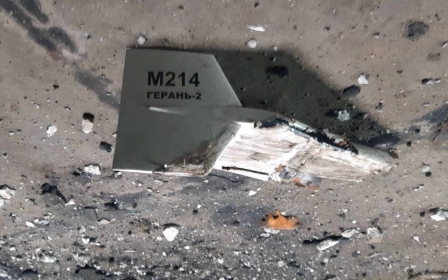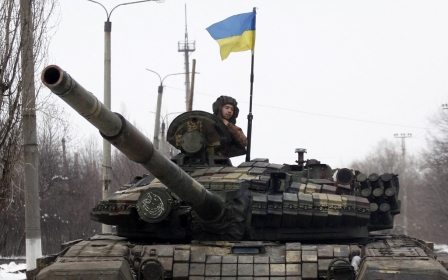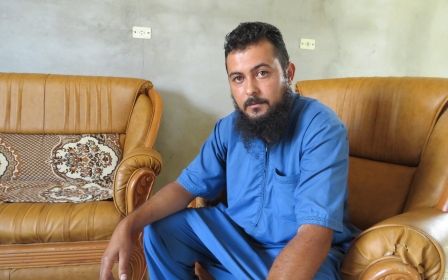Wagner group: Russian prisoners recruited by mercenaries 'already captured by Ukrainian forces'
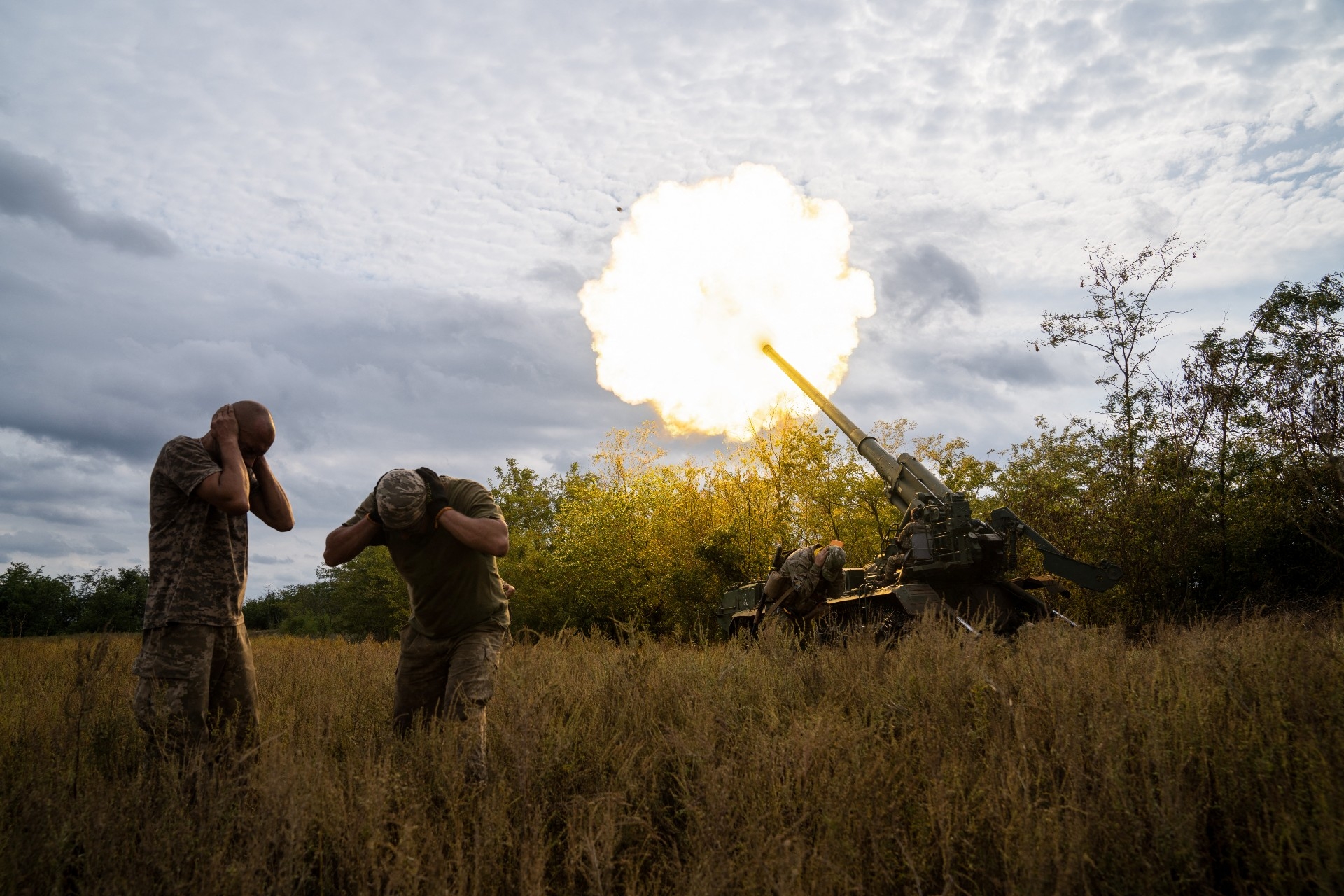
Some of the criminals that the Wagner Group private military company has recruited from Russian prisons have already been captured in Ukraine, sources have told Middle East Eye.
Wagner, a paramilitary firm employed by Russia’s government to fight in conflicts from Mali to Syria, has reportedly been recruiting Russian prisoners to fight in Ukraine, to alleviate the troop shortages in Moscow’s ranks.
Wagner, an opaque amalgamation of shadowy firms and contractors, is linked to Russian President Vladimir Putin through his close associate Yevgeny Prigozhin. It has allegedly committed abuses in Syria, Libya and the Central African Republic.
One foreign volunteer fighting for Ukraine, speaking anonymously, told MEE that many Wagner mercenaries have been taken prisoner recently, and about 30 of them were Russians who used to be inmates.
'They usually drive these people to the front as bait. We know that 500 to 600 prisoners were brought from Russia in this way in the last months'
- Anonymous source
The source said in total around 400 Russians have been captured in recent weeks, and as their interrogations were conducted by Ukrainian officials, available information on the captives was limited.
New MEE newsletter: Jerusalem Dispatch
Sign up to get the latest insights and analysis on Israel-Palestine, alongside Turkey Unpacked and other MEE newsletters
“The majority of the former Russian prisoners fighting in Ukraine have been convicted of military crimes, or [were] involved in military crimes, or [are] those who did not obey orders,” the source added.
The source also said his unit, which is participating in the steamrolling Ukrainian counteroffensive around Kherson and Kharkiv, has in recent days come across Russian troops with no military experience.
A second source familiar with the issue told MEE that Wagner has given its worst equipment to the prisoners it brought to fight in Ukraine.
"They usually drive these people to the front as bait,” the second source said. “We know that 500 to 600 prisoners were collected and brought from Russia in this way in the last months."
The source added that the Russian prisoners claiming to be freed inmates are mostly troops seized after being left behind by their forces, and appear to have no combat experience.
A Ukrainian official told MEE that Kyiv could not comment on the issue due to ongoing operations.
Prison recruitment
Russia had long denied that Wagner existed, but since the organisation began fighting in Ukraine, Russian media has begun excitedly discussing its operations.
Prigozhin has also denied any links to the private army. Yet he is believed to have begun visiting prison colonies in March, as the Russian invasion that began the previous month faltered and its military losses mounted.
Olga Romanova, director of the Russia Behind Bars foundation, told the media that Wagner’s prisoner-conscription process started in February and March, when convicted Siloviki began to be recruited from prisons. Siloviki is a term to describe the Russian security men close to Putin, many of whom served in the KGB and have maintained conservative political views.
An average of 20 percent of the Wagner convicts are murderers and robbers recruited from penal colonies, according to Romanova and another source familiar with the issue.
Romanova claims that Prigozhin could easily recruit 50,000 to 60,000 criminals in the near future.
The investigative outlet Verstka and Russia Behind Bars said that by mid-August Wagner representatives had visited 21 Russian penal colonies in 13 regions. Recruiters offered inmates up to 200,000 roubles ($3,341) and amnesty in exchange for going to the front for six months. In most penal colonies, according to Verstka, about 20 percent of convicts accepted Wagner’s offer.
The anonymous source familiar with the issue, who closely follows Russia's military presence in Ukraine, told MEE that in addition to the Siloviki, imprisoned members of organised crime syndicates, especially the Chechen mafia, were recruited by unnamed mercenary units affiliated with Wagner and some oligarchs.
There are approximately 650 penal colonies of different types in Russia, and according to May 2022 figures, 468,000 people are incarcerated - consisting of Siloviki, Chechens and other convicts.
Footage posted on Russian Telegram channels on Monday showed a man addressing what appears to be a crowd of prisoners in Russia, who were standing underneath a banner that read: “Choose life”. Some have claimed the man is Prigozhin.
“After six months [at war] you receive a pardon, and there is no option for you to return to prison,” the man said. Wagner, in a statement to the Ria Novosti news agency on Thursday, confirmed sarcastically that the man indeed looked like Prigozhin and was delivering a “professional” speech like him.
Verstka has also quoted the wife of a Russian convict, who spoke about her struggle to prevent her husband from being recruited by Wagner. Her husband was questioned by the prison colony chief, a Russian Federal Penitentiary Service officer and a Wagner representative after she complained about his recruitment, according to the report.
Witnesses told Verstka that in his speeches in prison colonies, Prigozhin said that 80 percent of those who went to Ukraine would not return. However, he reportedly uses the promise of salaries and amnesties from Putin to motivate the recruits, benefits they receive after six months.
Wagner’s fighters are renowned for their far-right views and Slavic nationalism. Though Wagner is the best known, other similar Russian military companies, such as Rusich Group, Imperial Legion and RSB Group, also support Moscow’s army and separatist militias in Ukraine.
Middle East Eye delivers independent and unrivalled coverage and analysis of the Middle East, North Africa and beyond. To learn more about republishing this content and the associated fees, please fill out this form. More about MEE can be found here.


